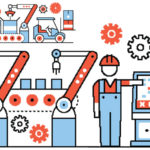This story is part of What Happens Next , our complete guide to understanding the future. Read more predictions about the Future of Aging .
A lot of caregiving policy feels like it was written in the 1950s—because it was.
Our system of caregiving was built for a time when the economy functioned on women’s unpaid labor. In the 1960s, when Medicare was created , just over one third of women participated in the workforce. As most women were full-time homemakers who stayed home to cook, clean, and care for the children and grandparents, the social safety net didn’t need […]
Full Post at qz.com






